职业高中英语基础模块下册unit 6 What's important
- 格式:ppt
- 大小:2.84 MB
- 文档页数:69
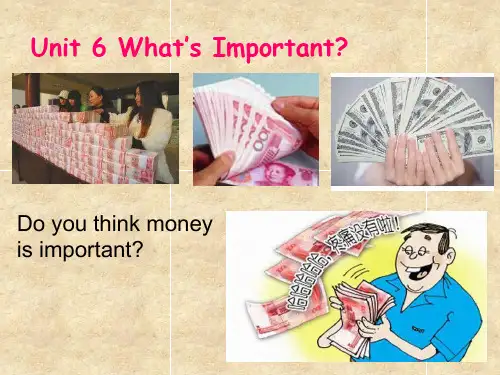
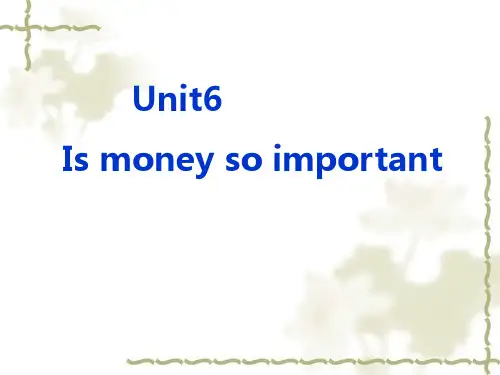
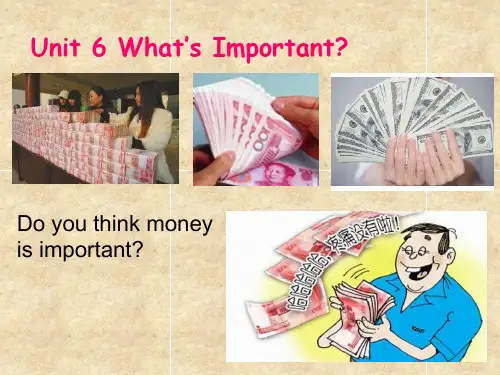


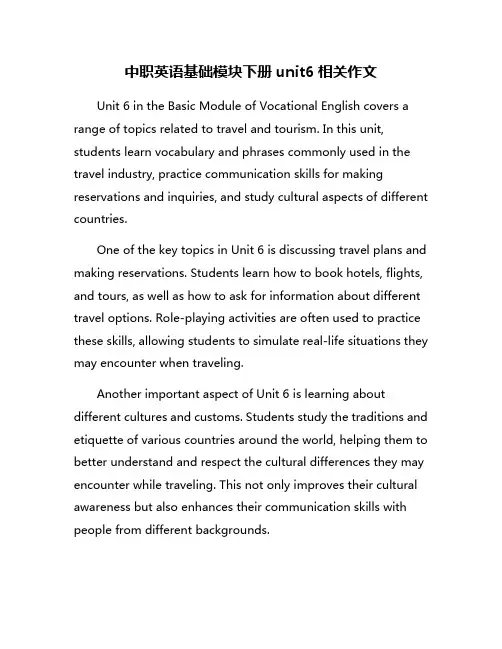
中职英语基础模块下册unit6相关作文Unit 6 in the Basic Module of Vocational English covers a range of topics related to travel and tourism. In this unit, students learn vocabulary and phrases commonly used in the travel industry, practice communication skills for making reservations and inquiries, and study cultural aspects of different countries.One of the key topics in Unit 6 is discussing travel plans and making reservations. Students learn how to book hotels, flights, and tours, as well as how to ask for information about different travel options. Role-playing activities are often used to practice these skills, allowing students to simulate real-life situations they may encounter when traveling.Another important aspect of Unit 6 is learning about different cultures and customs. Students study the traditions and etiquette of various countries around the world, helping them to better understand and respect the cultural differences they may encounter while traveling. This not only improves their cultural awareness but also enhances their communication skills with people from different backgrounds.Furthermore, Unit 6 introduces students to the basics of tourism management, including marketing strategies, customer service, and sustainable tourism practices. By understanding these concepts, students are better prepared for future careers in the travel industry and can contribute positively to the growth and development of the tourism sector.In conclusion, Unit 6 of the Basic Module in Vocational English provides students with essential language skills and cultural knowledge for a successful career in travel and tourism. Through a combination of language practice, cultural studies, and tourism management concepts, students can develop a well-rounded understanding of the industry and build a solid foundation for future success.。
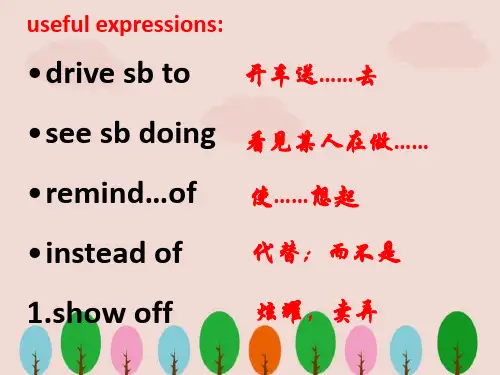
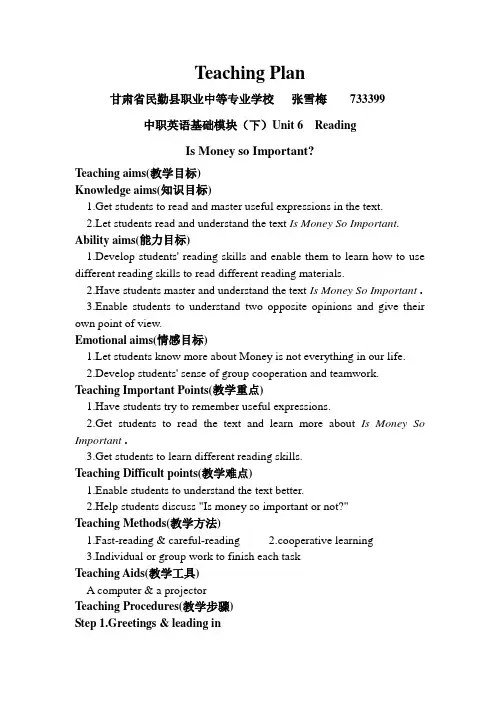
Teaching Plan甘肃省民勤县职业中等专业学校张雪梅733399中职英语基础模块(下)Unit 6 ReadingIs Money so Important?Teaching aims(教学目标)Knowledge aims(知识目标)1.Get students to read and master useful expressions in the text.2.Let students read and understand the text Is Money So Important. Ability aims(能力目标)1.Develop students' reading skills and enable them to learn how to use different reading skills to read different reading materials.2.Have students master and understand the text Is Money So Important.3.Enable students to understand two opposite opinions and give their own point of view.Emotional aims(情感目标)1.Let students know more about Money is not everything in our life.2.Develop students' sense of group cooperation and teamwork. Teaching Important Points(教学重点)1.Have students try to remember useful expressions.2.Get students to read the text and learn more about Is Money So Important.3.Get students to learn different reading skills.Teaching Difficult points(教学难点)1.Enable students to understand the text better.2.Help students discuss "Is money so important or not?"Teaching Methods(教学方法)1.Fast-reading & careful-reading2.cooperative learning3.Individual or group work to finish each taskTeaching Aids(教学工具)A computer & a projectorTeaching Procedures(教学步骤)Step 1.Greetings & leading inSay something about "happiness" and lead in the topic of the reading part.What’s the happiness to you?Different students have different answers: good job, friendship, big house, love, health, money, success,etc.(设计意图:以问题导入,引起学生的兴趣。

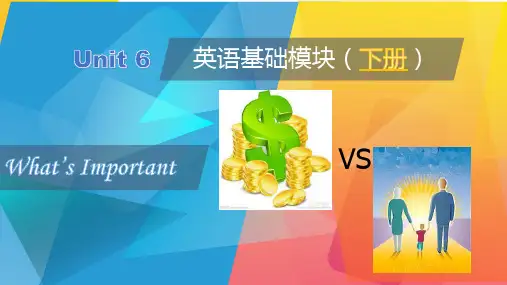
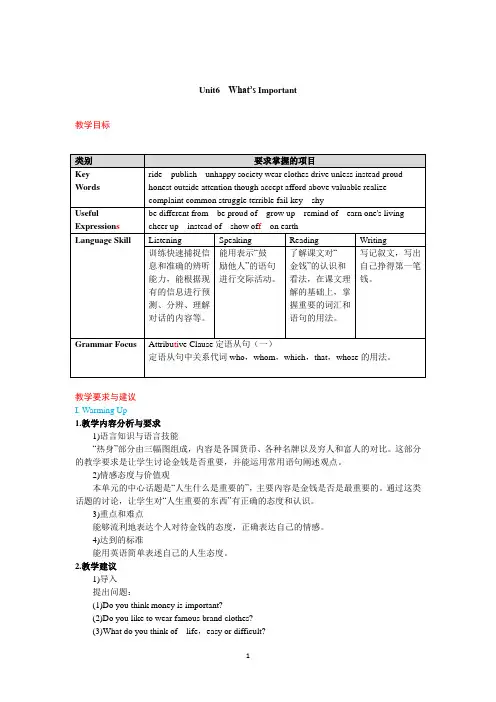
Unit6 What’s Important教学目标教学要求与建议I. Warming Up1.教学内容分析与要求1)语言知识与语言技能“热身”部分由三幅图组成,内容是各国货币、各种名牌以及穷人和富人的对比。
这部分的教学要求是让学生讨论金钱是否重要,并能运用常用语句阐述观点。
2)情感态度与价值观本单元的中心话题是“人生什么是重要的”,主要內容是金钱是否是最重要的。
通过这类话题的讨论,让学生对“人生重要的东西”有正确的态度和认识。
3)重点和难点能够流利地表达个人对待金钱的态度,正确表达自己的情感。
4)达到的标准能用英语简单表述自己的人生态度。
2.教学建议1)导入提出问题:(1)Do you think money is important?(2)Do you like to wear famous brand clothes?(3)What do you think of life,easy or difficult?组织学生英语讨论warming up中的三个问题,要求学生对每个问题都能按下述逻辑顺序谈话:(1)观点。
(2)对自己的观点进行支持,谈出理由或根据。
(3)结论:所以……。
例如:(1)Yes,I’m sure money is the most important in our life. Whatever we do, we need money,such as food,clothes,housing,travel,school,making friends and so on. Everything needs money. If we have no money, we can’t do anything. We cannot live without money.(2)No. I think friendship is more important than money.…(3)No. I think knowledge is more important than money.…介绍一个学生的发言供参考:Money is very i mportant in our lives. Many people think that when you have money you can be happy. That means if a person is poor,he can never be happy.In my opinion,money is important for food,clothing,shelter and transportation. Without money,we could have done nothing. But that does not mean that only the rich are happy. Rich people are too busy earning money so they can not enjoy life. They are constantly worrying about losing their fortun e. How can they be happy? On the contrary,if a person is penniless,he has to worry about money all the time,so he won’t be happy either.The really happy person is one who has enough money so that he can do whatever he wants. He is not crazy for money and is content with life.3)教师点评学生讨论发言,导入listening教学。
第一部分:概述1. 关于本单元的介绍本单元是《中职英语基础模块第二版》中的第六单元,主要内容涵盖了日常生活和工作中常见的工作场景及相关的英语表达。
通过学习本单元,学生将能够掌握一些与工作相关的基础词汇和语法知识,提高日常生活中与他人交流的能力。
第二部分:主要内容2.1 词汇学习本单元的词汇学习包括了与工作相关的常用词汇和短语。
介绍自己的职业、谈论工作安排、描述工作任务等。
通过学习这些词汇和短语,学生将能够更好地理解和运用在日常工作中所需的英语表达。
2.2 语法知识本单元也涉及到了一些与工作相关的语法知识,比如进行时间的表达、介绍自己的职业等。
这些语法知识的学习将帮助学生更准确地使用英语句式,提高自己的口语表达能力。
第三部分:学习方法3.1 听力训练通过听力训练,学生可以在真实的语境中接触到与工作相关的英语表达,提高自己的听力理解能力。
老师可以通过播放录音或视瓶的方式,让学生真实地感受到工作场景中的英语交流。
3.2 口语练习口语练习是提高学生英语口语能力的重要途径。
老师可以设计一些角色扮演的活动,让学生在模拟的工作场景中进行口语练习,提高他们的实际应用能力。
3.3 词汇和语法复习在学习过程中,学生需要不断地复习之前学过的词汇和语法知识,巩固所学内容。
老师可以设计一些课堂练习和作业,帮助学生更好地掌握所学知识。
第四部分:教学建议4.1 多媒体辅助教学在教学过程中,老师可以通过多媒体教学软件,如PPT、录音、视瓶等,向学生展示真实的工作场景和相关的英语表达,激发学生学习的兴趣,并帮助他们更快地理解和掌握所学内容。
4.2 创设真实场景可以通过课堂活动的方式,创设真实的工作场景,让学生在模拟的情境中进行角色扮演和英语交流,提高学生的英语口语能力,增强他们的学习体验。
4.3 分层次教学针对不同水平的学生,可以进行分层教学,让每个学生都能够在适合自己水平的教学环境中学习,做到学有所成。
第五部分:总结通过本单元的学习,学生将能够掌握一定量的与工作相关的词汇和语法知识,提高自己的英语口语表达能力。
Unit6 Is money so important Teaching aims:1.Can finish the exercises independently.2.Can understand the passage well;3.Can master the phrases appeared in this passage;Teaching important point:The understanding of the passageTeaching difficult point:The grammar points in this partTeaching methods:1.Task-Based teaching method and communicative method.2.Practice makes perfect ,so do more practice.Teaching aids:Multimedia computerTeaching periods:10Teaching procedures:The first periodStep I. GreetingGreet the students.Step II. RevisionReview what they have learned in last class.1.Ask students to read aloud the words by themselves, each word twotimes;2.If their pronunciation are wrong, correct it.Step III. Reading.1.Extensive reading.Give students 3minutes to read the passage briefly. And answer the questions on page 52.2.Intensive readingAfter that, give students 5more minutes to read the passage carefully and thoroughly. And answer the questions of Reading Comprehension. Ask someone to read his or her answer to everyone, then let the others to check it.The correct answers are:Step IV. ExplanationAsk some students to read the passage paragraph by paragraph, then explain it to them.1 remind的用法:remind sb. of sth. ;remind sb. that …remind sb to do sth. …表示提醒某人做某事。